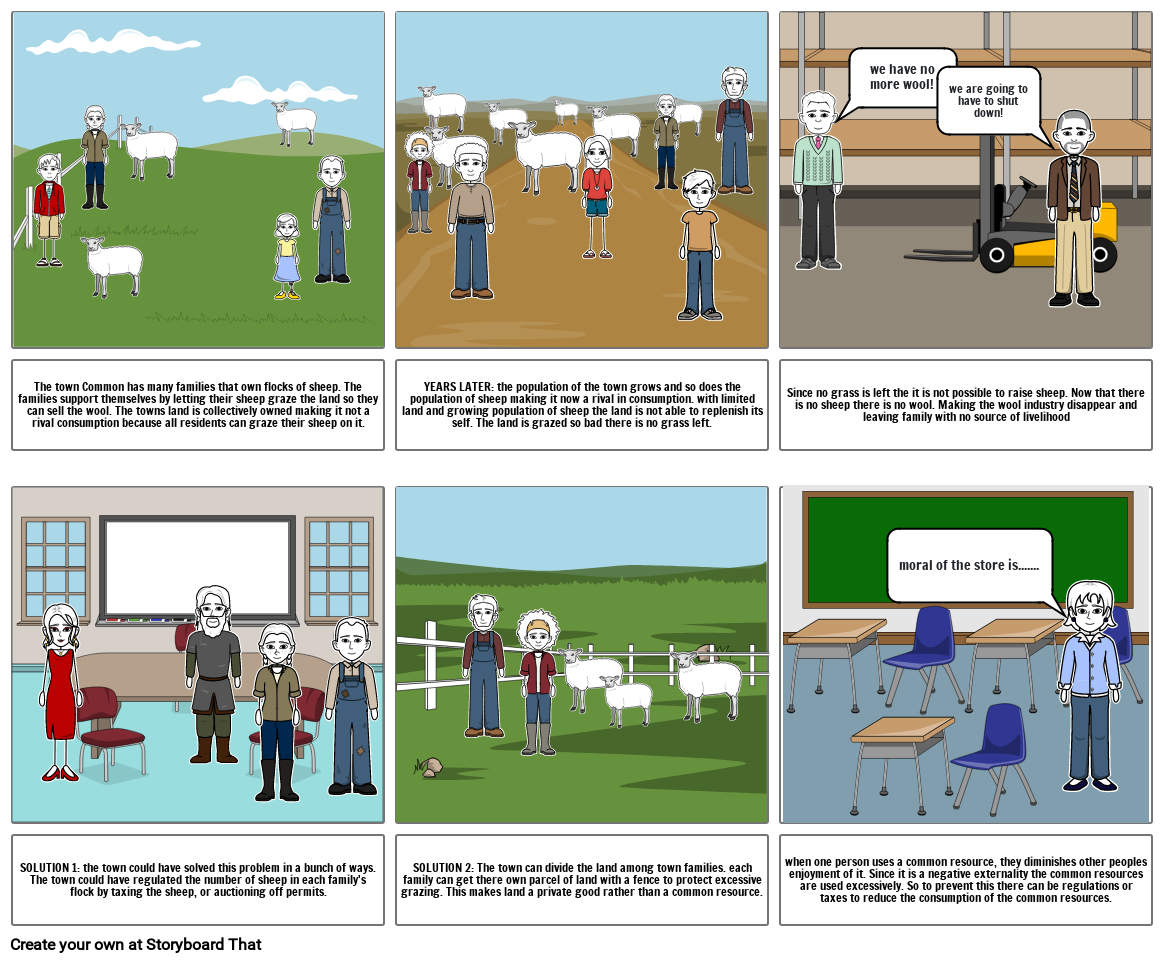econ

Storyboard Text
- we have no more wool!
- we are going to have to shut down!
- The town Common has many families that own flocks of sheep. The families support themselves by letting their sheep graze the land so they can sell the wool. The towns land is collectively owned making it not a rival consumption because all residents can graze their sheep on it.
- YEARS LATER: the population of the town grows and so does the population of sheep making it now a rival in consumption. with limited land and growing population of sheep the land is not able to replenish its self. The land is grazed so bad there is no grass left.
- Since no grass is left the it is not possible to raise sheep. Now that there is no sheep there is no wool. Making the wool industry disappear and leaving family with no source of livelihood
- moral of the store is.......
- SOLUTION 1: the town could have solved this problem in a bunch of ways. The town could have regulated the number of sheep in each family's flock by taxing the sheep, or auctioning off permits.
- SOLUTION 2: The town can divide the land among town families. each family can get there own parcel of land with a fence to protect excessive grazing. This makes land a private good rather than a common resource.
- when one person uses a common resource, they diminishes other peoples enjoyment of it. Since it is a negative externality the common resources are used excessively. So to prevent this there can be regulations or taxes to reduce the consumption of the common resources.
Over 30 Million Storyboards Created
No Downloads, No Credit Card, and No Login Needed to Try!
